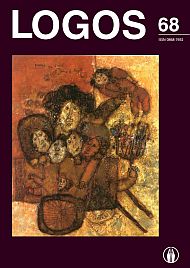Albertas Didysis : Pažinimo Prigimtis Ir Intelektualinė Siela
Albertus Magnus: the Nature of Cognition and Intellectual Soul
Author(s): Juozas ŽilionisSubject(s): Metaphysics, Philosophy of Middle Ages
Published by: Visuomeninė organizacija »LOGOS«
Keywords: Albertus Magnus; intellectual soul; nature; cognitive habit; universals;
Summary/Abstract: The article analyzes the concept of intellectual soul as it was understood by Albertus Magnus, who developed it on the background of Christian tradition, relaying on the texts of Ancient Greek and Arab thinkers. While inquiring the nature of intellect, Albertus Magnus proves that the essence of the soul consists in the cognitive ability, which it obtains from the first cause. He uses the term “soul” equivocally, relating it to being and acting, but the term “cause” he uses univocally. When created soul acquires the ability to know, it becomes intellectual and desires to approach the first cause as the source of knowledge. The image of the soul is like that of the first cause but it is not exact because of the remoteness of the soul from that cause. In some way, human intellectual soul is the perfection of the body but at the same tame it is a separate soul, therefore it functions as nature as well as potency. The intellectual nature of the soul reveals itself by the actualization of potential ideas.
Journal: LOGOS - A Journal of Religion, Philosophy, Comparative Cultural Studies and Art
- Issue Year: 2011
- Issue No: 68
- Page Range: 95-103
- Page Count: 9
- Language: Lithuanian

